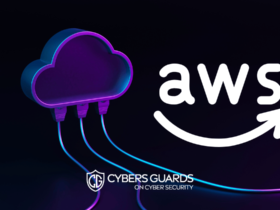Enterprise resource planning software, or ERP software, is a broad term for a suite of software applications that help users manage all aspects of a business operation, such as customer support, sales, marketing, financials, logistics and warehousing, and others. Because ERP software consolidate all these business functions within the same system, it becomes easier for a company’s different departments to share information, communicate, and coordinate their efforts across the entire enterprise.
The integrated nature of ERP systems has made them critical for efficient business management across a wide range of industries. In fact, ERP has proven so effective over the years that developers have gone on to develop industry-specific ERP solutions to better meet the needs of client businesses. These solutions are designed to address the specific needs and challenges of a particular sector and of the verticals within that sector.

If you run a distribution company, you’ll want an ERP solution that will help you manage your supply chain, logistics, and inventory in an increasingly unpredictable, interconnected market. Distribution ERP systems will give you the agility you need to stay on top of shifts in demand, costs, and other factors.
Who Can Benefit Most from Distribution ERP Systems?
Distribution ERP systems can be immensely beneficial to most anyone who works in the industry. Whether you run an apparel company, a home furnishings business, a food distribution business, or any other similar enterprise, a robust ERP solution will support your business needs and enhance your profitability. This support is especially crucial considering the host of difficulties that distribution companies today face, including increasingly high supply chain costs, evolving customer expectations, and unpredictable global markets.
The following business entities in particular stand to gain much from implementing the latest distribution ERP technology:
Food Distributors
In the food industry, factors like demand, customer time windows, and cost-to-serve can change rapidly and without warning. Food distributors also have to stay on top of any transit requirements for their products, such as refrigeration, insulation, or the separation of different product types. A distribution ERP enables such enterprises to do all this and more, preventing costly food wastage and lost inventory.
Wholesalers
Wholesalers across different industries face unique challenges depending on the retailers they serve, as handling shipping for big, established retailers is quite different from working with small independent brands. Ecommerce retailers and those that maintain physical storefronts will also likely have different shipping needs. But whatever your business model might be, you’ll get all the support you need from a modern distribution ERP.
Third-Party Logistics Providers
Third-party logistics (3PL) providers offer shipping and handling services to help ecommerce retailers fulfill orders. To complete deliveries in a timely and organized fashion and drive customer satisfaction upward, 3PL providers must fine-tune their operations for maximum efficiency. Distribution ERP systems can help them achieve this by automating retailer order fulfillment.
What Aspects of Distribution Management Does an ERP Improve?
ERP systems help distributors become more responsive, flexible, and productive, all of which are necessary to successfully navigate these challenging times. More specifically, the right ERP can enhance distribution management operations in the following areas, among others:
Order Fulfillment
It’s in distributors’ best interest to fulfill as many orders as possible within the shortest possible window of time. However, many legacy companies remain dependent on manual order processing, which can be both error-prone and time-consuming, leading to costly delays. ERP software can completely automate order processing procedures, from placement to invoicing to delivery. This ensures total accuracy and speedy fulfillment with minimal human intervention required, if any.
Inventory Management and Forecasting
Successful distribution companies must be able to predict customer demand accurately and ensure that their inventories are well-supplied in accordance with these expectations. Distribution ERP solutions make this possible with top-notch data-gathering functions, so that distributors can get real-time access to critical information from customers, suppliers, and current market trends. With this information in hand, they can optimize inventory management and respond immediately to any shifts in the market, minimizing losses.
Cost Management
ERP systems can give distributors an accurate perspective on their company’s profitability and costs. Whether company leaders are evaluating the business as a whole or zeroing in on a specific location, warehouse, or production line, they can be assured of high-quality, comprehensive, and real-time data. This data in turn supports more effective cost control across the company’s entire distribution and supply chain.
Customer Experience
Today’s customers appreciate speed, convenience, and communicativeness from the businesses they work with, and distributors are no exception. Fortunately, the efficiency gains that ERP systems afford distribution companies lead naturally into a smoother and more pleasant customer experience overall.
Customers will definitely appreciate automatic order processing, fast and efficient delivery, real-time visibility into the status of pending orders and returns, as well as other procedures implemented for their benefit. ERPs also facilitate communication between clients and customer support staff across a wide range of digital platforms, making it easier for distributors to collect feedback and resolve any problems that might come up during the order fulfillment process.
Ultimately, an industry-specific ERP system has the potential to change the game entirely for distributors. Once a company chooses the right software for their needs, they can expect to see significant ROI right from the get-go.











FIND US ON SOCIALS